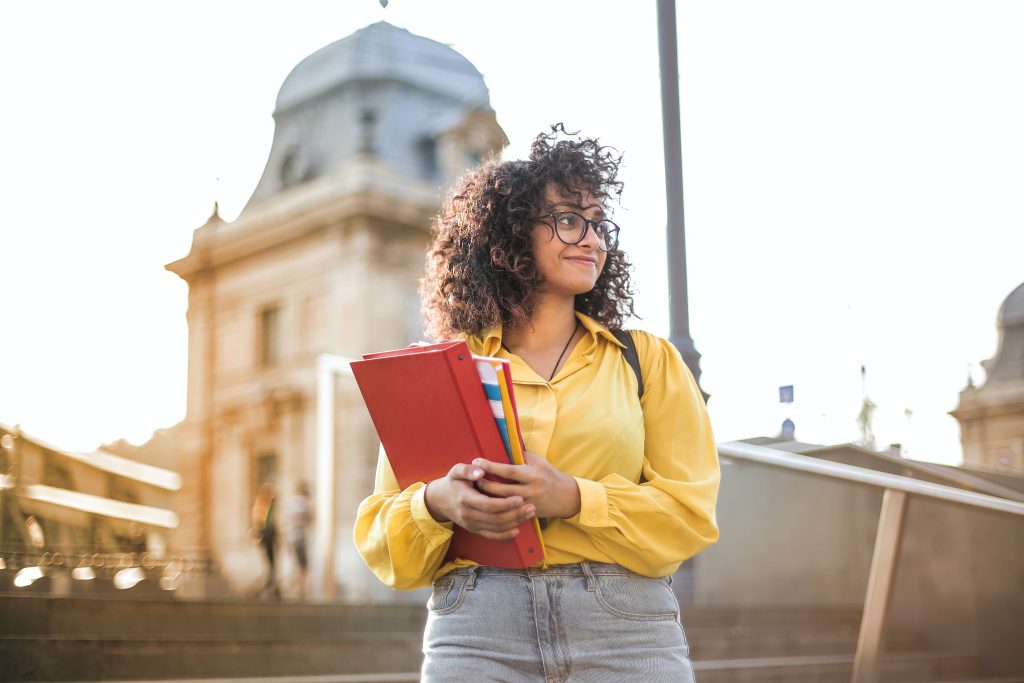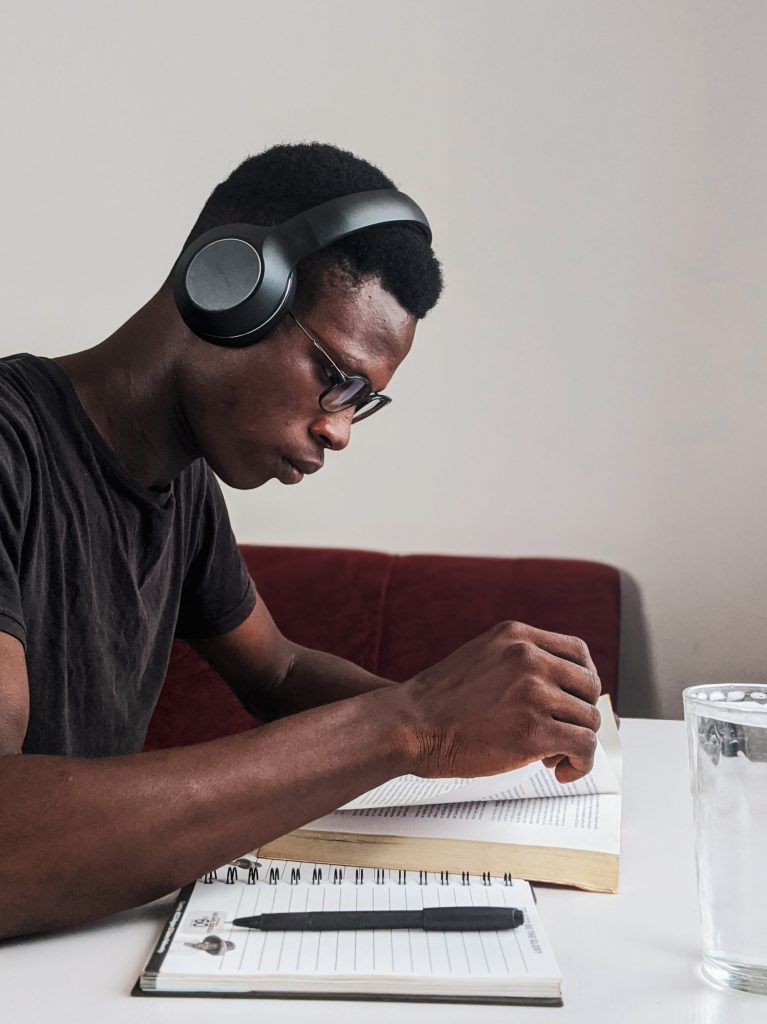“Dear Serena,” is a column series dedicated to centering identity in our everyday conversations. My writings look through the lenses of being a first-generation, greek, queer woman of color on the liberal arts campus that is the University of Puget Sound. Each week, I will share my insights on a specific aspect of identity, utilizing a Q&A format. My hope for this column is that it helps students gain insight on various identities underrepresented and underappreciated on campus. Of course, like any one-woman work this Dear Serena column does not speak on behalf of any of the communities I am a part of. Rather, it shares my unique approach of how I view and navigate the world because of my identities. I hope you enjoy what you read, and do feel free to submit any questions to me, Serena at ssevasin@pugetsound.edu.

This week’s question: What does “normal” after quarantine look like for you when you are already part of a disenfranchised demographic on campus?
Dear Serena, being a black female student at Puget Sound already has you at a disadvantage. How do you envision life for yourself and other students in similar situations once we make our way back on campus?
Dear Reader,
I won’t lie and say that I envision myself going back to school in an environment of normalcy once we can all be together again, but it’s also a lie to say there will be complete dissonance between students, staff, faculty, etc. If anything, I can understand a sense of pity or sympathy for those like myself, but not normalcy. This pandemic has caused me and more specifically marginalized students to have to deal with the idea of hyper-visibility versus invisibility more than ever.

Being a black scholar studying theory and practicing social justice has allowed me to deeper understand disparities between white students and those of marginalized communities on my own campus. I have been reflecting especially on students who have been living on campus during this time that face circumstances that make it unsafe, unmanageable, or impossible to go home. I have also observed that these same people make up a number of students that are historically disadvantaged at the university to begin with. I think about how it will feel to tell my friends about how quarantine on campus was for me. Honestly, it brings a sense of embarrassment and insecurity for me, because staying never felt like an option, rather it was a necessity for myself and many others in the same boat. “Normal” for myself consists of campus housing, food, and self-reliance while for many of my friends it consists of going home to families, home-cooked meals, and love from pets that never leave them alone.
In all honesty, it is a bit disheartening thinking of what “normal” could look like for someone who doesn’t have a “normal” to refer back to. Or at least not the normal most Americans define it as. Reeling back from this as a student will affect everyone, but trying to find security and safety in others will be a definite barrier for me, especially to those who are living much different lives from myself at this point in time. So my answer to you reader, is that there isn’t a normal for me to go back to, I have to simply do what I always have and go with the flow of things. Yet, perhaps post Covid-19, I can be more forthcoming about the need to redefine “normal.”
I do hope this has provided you clarity, or at the least some insight.
Serena

This Week’s Question: I am a student of color at the university, how do you find a sense of belonging on a predominantly-white campus?
“Dear Serena, I am a student of color on campus and I have been struggling to find a community at Puget Sound. How have you been able to find a sense of belonging on campus in your time here?”
Dear Reader, when I first got to Puget Sound I was so preoccupied with how I was perceived that I couldn’t focus on finding my community. I tried my best to fully invest, and then some, in the clubs and organizations I had been part of, but none of them were identity-based groups. Even with attaining leadership roles in the extracurriculars I took on, nothing seemed to be fulfilling enough. The impostor syndrome* in me was feeling pretty real.
*A self-definition of Impostor Syndrome: the self-doubt and sense of inadequacy one projects onto themselves due to underestimating their efforts in being successful, but even more so seeing their success as a result of forces outside their own or a result of sheer luck.
I had been fortunate enough to come into college with a roommate and a lingering support system from high school, providing me with friends to rely on and to feel a sense of belonging. But as time passed, I found myself slowly over-extending: attending the extra club meetings, clocking more hours at work, cramming homework in on a Sunday because I spent all Saturday with the girls. But nothing made me feel truly connected. One of my best friends from high school had been an active member of the Black Student Union on campus and consistently encouraged me to come to meetings. Ironically, I was part of every club I was interested in on campus except for BSU, but due to my dedication to my other commitments, I never made any meetings in my first year.

At the beginning of my second year, I was more determined than ever to find something that not only allowed me opportunities and connections but something that brought me fulfillment. I was pursuing leadership in everything I was part of, but also made my way to the Student Diversity Center (SDC) every Tuesday evening for BSU meetings. I found Tuesdays being my favorite day of the week because I was able to meet with a group of people who faced experiences like my own both inside and outside the classroom. I found peers dedicated to creating community not just among one another, but with the campus as a whole through collective action. I found affirmation at my deepest level joining this group, and would only desire everyone else to find the same, especially those who are most vulnerable and underrepresented within our campus demographic.
I also found that because I was in my second year, my learning became more focused. Being in the African American Studies program was where I found myself reflecting a lot more of the things I was learning. In going into a field of study where my identity is at the basis of all curriculum, I found myself becoming more cognizant of how my identity shapes the way I see the world, and how the world sees and shapes me. If I could get every student into an AFAM class, I would. The insight and relevance of all the information I intake is something necessary for every student. I also think taking the time to explore our relationships with race would allow for an expansion of knowledge that can pertain to every medium. Along those same lines, taking classes that reflect identity is important for every student, especially those of color, but always remembering that those spaces will be dominated by white students too. A large part of my connection to the AFAM program are the bonds with faculty who reflect my identities and finding safety in my education through that as well.
At the end of the day, I’m still going to be black, and I’m still going to be a woman all at once. What is bringing me my greatest community and feeling of liberation is being involved in the spaces that reflect me and my own lived experience.
I won’t tell you to go out and find an identity-based group to join on campus, but I will say that from finding those spaces for myself, I found myself more accepting and more importantly, learning from my experiences and those of my peers in a place of solidarity. That being said, I have also added information relating to a couple of identity-based clubs on campus that are near and dear to my heart, hoping that you and other readers can search for and find your place of belonging.
I hope this has been able to provide you with more insight, and aides you in finding your communities.
Serena
INFORMATION ON THE AFAM PROGRAM:
What is African American Studies?
“African American (AFAM) Studies is interdisciplinary, with focal fields such as history, sociology, English studies, communication studies, political science, psychology, social theory, art, music, economics, education, and even natural sciences, such as environmental science with a social justice lens.”
My Favorite AFAM class: AFAM 399 – Public Scholarship
This course has, of course, provided me with The Public to explore social justice through the lenses of my various identities, but it also allowed me a space to find my voice in the classroom and am especially grateful to still grow in this same way even if it has gone online.
INFORMATION FOR BSU:
What is BSU? Black Student Union is a group of students dedicated to crafting a community of Black students and their allies that support, listen, grow, and empathize with each other while also creating a presence on our campus that reflects positivity, growth, and black liberation.
Instagram: @pugetsoundbsu
Weekly Virtual Meetings for Spring 2020: Tuesdays at 7-8pm (Pacific Standard Time) via Zoom
All students who are on the email list receive links to the weekly meetings. If you want more information regarding BSU (Black Student Union) or want to join the email list, contact:
INFORMATION FOR COMBS:
What is COMBS? Coalition of Multiracial and Biracial Students is a club dedicated to students who identify as multiracial or biracial. We use the space to discuss race and culture, or other issues affecting our lives. During the meetings, we are able to learn from each other, and we are able to create a community for students who do not feel like they fit into one specific group, either racially or on campus.
Facebook Page: COMBS (Coalition of Multiracial & Biracial Students) https://www.facebook.com/groups/combs.ups/
Instagram: @combs_ups
Weekly Virtual Meetings for Spring 2020: Mondays 5-6pm (Pacific Standard Time) via Zoom
All students who are on the email list receive links to the weekly meetings. If you want more information regarding COMBS or want to join the email list, contact:

This Week’s Question:
I’m first-gen, how can I speak to my family about college?
“Dear Serena, I am a freshman first-generation student here at the University. I have had a hard time being honest with my family about my academic progress. Since getting to college, my grade point average has dropped significantly. My family has always expected me to be successful in college, how will they understand that I am not doing well? Do you have any ideas for trying to have these harder conversations so that they can understand?”
Dear Reader, I can understand your concerns, I too have had blocks in communicating my college experience with family in the past. I find that there’s a trend of grades dropping when transitioning from being a high school student to a college student. College is a hard place to be. You are tasked to form a life of your own while maintaining your academics as a priority, and sometimes that can feel impossible to do especially in your first year. I have had to navigate conversations of my grades taking a hit, and felt the necessity to explain each thing I have done to be successful as a means to turn things around. What I can say is that no matter what you communicate to family or self, those grades won’t change.
Absolute transparency is always the best way to go, especially when it comes to your successes (and pitfalls) as a student. Being a first-generation student requires a sense of independent guidance and when transitioning into the new world that is Puget Sound, especially here where academia is emphasized, you have to understand you won’t always be on your best game. There is no shame in slipping up especially in your first year, it is about how you learn to balance, and proceed for the next three years. I know especially in the climate that’s consumed by COVID-19 right now there is room for error with every student, and that is something you have to communicate but, never assume it’s understood by a family that has never experienced college. At the end of the day, you are a student who is always learning, and saying that to your family is the first step in them trying to help you and your progress for the rest of your college journey.
I do hope my words have helped you, or at least given you some comfort.
Sending my best,
Serena



